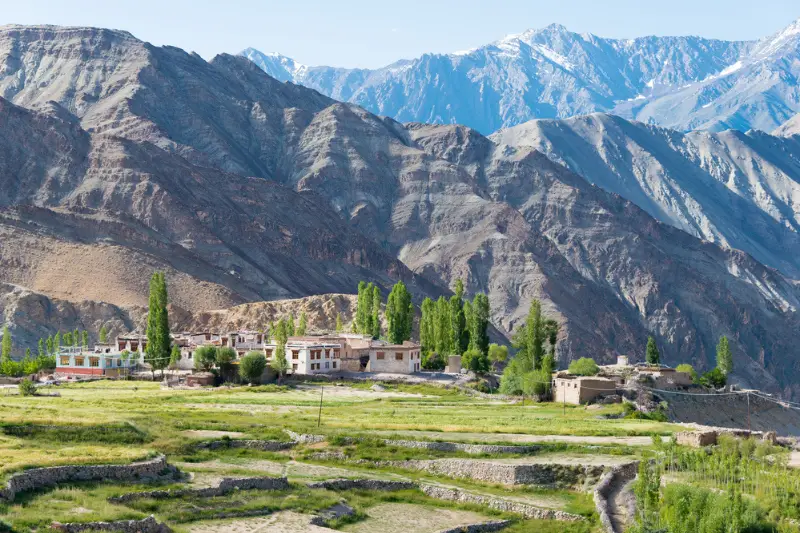Click here to get this post in PDF
India, with its colossal population and diverse landscapes, faces significant environmental challenges, particularly in its bustling cities. Pollution has become an undeniable issue, casting a shadow over the nation’s natural beauty. In the midst of this, tourism emerges as a major economic force, attracting both domestic and foreign travelers. However, a paradigm shift is occurring as conscientious individuals recognize the urgency of preserving the environment. The burgeoning eco-tourism movement is now taking center stage, with entrepreneurs leading the charge to develop sustainable and responsible travel alternatives.
Ladakh’s Innovative Ride-Share Platform
Nestled in the lap of the Himalayas, Ladakh is a region of unparalleled beauty. The rise of Ladakh Taxi Driver, the leading taxi company in the area, signals a transformative approach to tourism. Recognizing the impact of vehicular pollution on the fragile ecosystem, Ladakh Taxi Driver has pioneered an online platform that encourages tourists to share taxis for multi-day tours. Drawing inspiration from successful models like BlaBlaCar, this initiative aims to reduce the number of vehicles traversing the Himalayan roads, subsequently mitigating pollution.
Ladakh Taxi Driver’s platform facilitates shared journeys to iconic destinations such as the Nubra Valley, Pangong Lake, and the monasteries of the Indus Valley. By promoting collective travel, the company is not only minimizing the carbon footprint but also fostering a sense of community among travelers. This innovative approach not only benefits the environment but also provides a unique and socially responsible experience for tourists exploring the pristine landscapes of Ladakh.
Rajasthan’s Water Conservation Initiative
In the arid expanses of Rajasthan, where the desert beckons, a unique eco-tourism program has taken root. Rajasthan Tours and Drivers, under the guidance of Director Mukesh, is redefining the tourist experience by integrating awareness of water conservation. Tourists embarking on desert expeditions receive training on the preciousness of water and learn practical techniques to conserve this vital resource.
Mukesh emphasizes the importance of instilling environmental consciousness among visitors, turning each journey into an opportunity for education and sustainable practices. Rajasthan Tours and Drivers are contributing to the larger cause of water conservation by ensuring that every tourist becomes an ambassador for responsible water usage. This innovative approach transforms the traditional tourist experience into an enlightening and environmentally conscious adventure.
Homestay Trekking in Ladakh
High in the Himalayas, Ju-Leh Adventure is making waves in the eco-tourism landscape through its commitment to community engagement and rural development. This trekking agency specializes in organizing treks in remote regions, urging tourists to immerse themselves in the local culture by staying in homestays.
“We encourage tourists to stay in homestays during their trek,” says the team at Ju-Leh Adventure. This strategy not only helps curb rural-urban migration but also ensures that income generated from tourism is evenly distributed among the local communities. Trekkers, by opting for homestays, get the chance to delve into the unique ways of life of Ladakhi villagers, sharing meals and cultural exchanges that go beyond the typical tourist experience. Ju-Leh Adventure’s approach exemplifies how eco-tourism can serve as a catalyst for sustainable development and cultural preservation.
As India grapples with environmental challenges, the rise of eco-tourism businesses offers a glimmer of hope. From shared taxi platforms in Ladakh to water conservation initiatives in Rajasthan and community-based trekking in the Himalayas, entrepreneurs are steering the tourism industry towards a more sustainable and responsible future. These endeavors not only benefit the environment but also contribute to the preservation of India’s rich cultural heritage. The development of eco-tourism businesses signifies a shift towards a more harmonious coexistence between tourism and nature, ensuring that future generations can continue to marvel at the beauty that India has to offer.
You may also like: Promoting Local Tourism; Creative Ways of Tourism Marketing
Image source: Depositphotos.com


